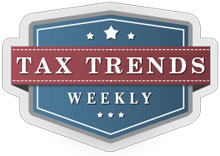America’s Political Dysfunction
Three key problems are at the heart of the long-term budget crisis the United States faces. First, government spending on entitlement programs such as Medicare and Social Security is unsustainable, even if tax revenue increases. Aside from the fiscal problems the entitlement programs cause, they are deeply unfair to younger people. For example, under current projections today’s third-graders will lose 25 cents (in present value terms) of every dollar they pay into Social Security.
Second, the American political process is fixated on short-term solutions. Politicians favor these solutions because they avoid taking unpopular stances and enhance their chances of winning re-election. The stimulus bill passed during President Obama’s first term resulted in huge increases in government spending as well as significant tax incentives. The results have been mediocre growth at best and a worsening of the nation’s long-term budget picture. The actions of the Federal Reserve also illustrated this problem. It has played a key role in driving interest rates to record lows. While the stock market has responded to cheap money, rock-bottom interest rates hurt savers who depend on bonds for their income. Moreover, fairness problems are again present; the biggest beneficiaries of the stock market rally are the wealthiest Americans.
Third, the political class too often views victory as obtaining what donors and lobbyists desire, rather than improving the economy for all. The bailouts of Wall Street and the auto industry are just the most obvious examples of this problem. Politicians who reward powerful and well-connected interests through legislation not only contribute to corruption in our political system, but also cause the less fortunate to question whether the country is still meritocratic.

